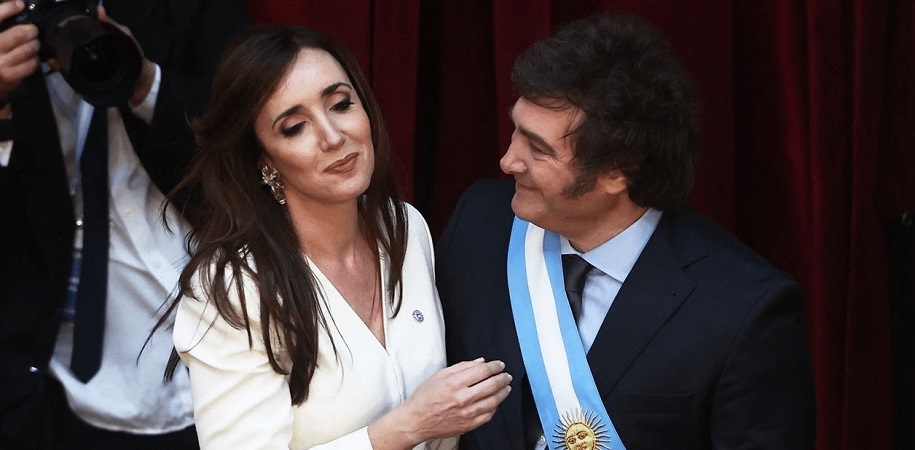
This Tuesday was a new day marked by symptoms of crisis in the National Government. If the previous week had ended with the lack of invitation to Victoria Villarruel to the toast of camaraderie with the high military command (in a new gesture of reconciliation with that force with a history of genocide), now the clashes became more intense and explicit.
During the morning, the spokesman with a minister’s salary (and a vocation for a ñoqui), Manuel Adorni, was the first to take the baton. Asked by journalists at his usual press conference about the scandalous increase in the allowances of senators – who were to receive $9 million, although they will reverse the measure after the scandal – he threw the blame at the vice president by stating that “it is an issue that should be asked to her, to see why it could not be stopped or why this scandal did not happen.” Villarruel was also absent from the cabinet meeting that took place during the same morning on Tuesday. The President, regarding this increase, stated in a (crazy) tweet that those responsible will suffer the consequences at the polls,” which some also interpreted as an innuendo to the vice president.
In any case, Villarruel did not stay behind this afternoon and made the differences concrete during a lunch at the Bar Association around a particularly controversial and sensitive issue for the government, when he stated regarding the candidacy for the Supreme Court of Judge Ariel Lijo that: “I do not believe that it was the best choice and it has simply been a controversial candidacy. We would all have liked to have a candidate, who makes us proud, who will be able to develop the highest judiciary with sufficient rectitude, honesty and wisdom possible; and this is not the case” and added that Lijo “would not have sufficient credentials”. Villarruel’s definitions are not a mere “difference of opinion”, but a direct clash with the government’s intentions regarding a place of importance for the government such as the Supreme Court, with the quota of power that it implies and especially in times of strong judicialization of politics. The vice president, as head of the Senate, has a strong stake in this matter, since the Senate must approve the future judge’s nomination by a majority of at least two thirds. At this time, it is unknown whether the government will be able to gather the necessary votes.
In the afternoon, the broadcast of a video of Javier Milei presenting a commemorative plaque to a former Malvinas combatant without Villarruel present was also interpreted by several media as another chapter in this internal dispute, due to the relationship between the vice president and the armed forces, based on the fact that her father was a soldier who participated in the war and was closely linked to soldiers found guilty of crimes against humanity (Villarruel’s own uncle was a fugitive from justice for years).
The increasingly bitter internal conflict between the President and the second in line of succession has been accumulating chapters in these months of government. However, it is clear that it is not the only one, but one more within a government that is far from achieving stability: the dozens of high-ranking officials who have been fired or “resigned” in just a few months are proof of that. Also part of this plot are the growing rumors and indications that indicate an underhanded internal conflict between Santiago Caputo and Karina Milei, the two people Javier Milei trusts the most.
The novelty, probably, is that these intrigues in the far-right world that constitutes La Libertad Avanza, occur in a context of growing discontent with the image of the government. Beyond the “help” given to the libertarians in the heat of the crisis of Peronism, a survey by the CIGP consulting firm reported that 93.5% of the population believes that the adjustment is being paid for by the middle and lower classes, while 63% think that the government’s management is “bad or very bad.”
Faced with these tremors and with no certainty of economic recovery in sight, these shocks in the government will probably threaten to become more intense. Fighting for a way out of the ongoing deep crisis will not come from any of them being “out of the game.” It is necessary to put the enormous force of the working class in motion to begin to propose a way out that responds to the interests of the great popular majorities and to stop this plundering.
Source: www.laizquierdadiario.com

